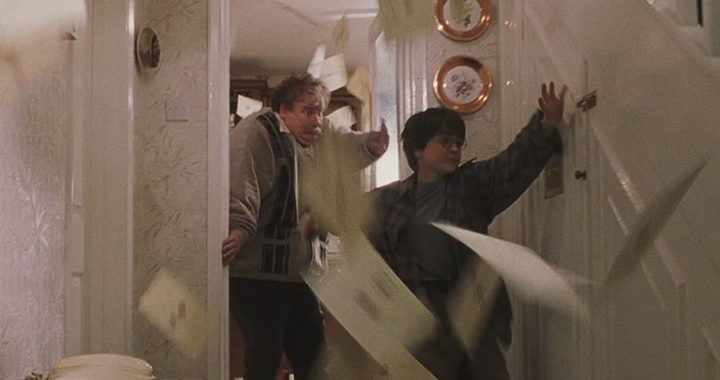Join hosts Aureo, Irvin, Sam, and guest Noah Fried as they discuss the third chapter in the first Harry Potter book: The Letters from No One, Sorcerer’s Stone, chapter 3
In this episode:
- Trigger Warning for Lack of Summer Holidays
- The trials, tribulations, and travels of the tortoise
- What is the maths behind the letters?
- A One-Woman Lobby for Owls
- The Flowchart of Animagus Procreation
- An army of baby basilisks
- Azkaban Adjacent Accommodations
Resources:
- The Role of Books in the Hogwarts Saga by David Martin
- Why Harry Picked Ginny, Rather Than Hermione, As A Romantic Partner by Gowdie
- The Swimming of Witches by Foxearth & District Local History Society
- Noah’s Wizard Rock
The Pub’s Jukebox: “Letters from No One” by Witherwings

The text falls heavily on the “nurture” side of the nature vs. nurture debate, given the whole theme of blood prejudice. The books frequently show that it’s not blood that makes people great (Hermione is muggleborn and top of the class; Neville is pureblood but succeeds through hard work, not circumstances; Voldemort leads the pureblood-supremacy group yet is a half-blood; etc.)
Which is why it annoys me greatly when the first movie tells Harry he’s good at quidditch because “it’s in your blood”. And gives that line to Hermione.
(The book has McGonagall remark that James was an excellent quidditch player.)
Yes indeed. I generally enjoy the first two films as reasonably faithful adaptations, but there are no doubts that a few lines (like that one) miss the nuance of the books’ themes. (Same goes for the Voldy confrontation, as we discussed in Episode 1.)
I don’t think one can wholly write off nature in these books, mostly because I’ve been doing a lot of analysis of Draco Malfoy lately, and he is perhaps the series’ most compelling case for nature over nurture – he really turned out far better than circumstances would have dictated. Jo definitely makes the point that it’s a combination of the two that informs whom someone turns out to be. But I agree that when looked at broadly, nurture wins out in HP.
Funnily enough, I’ve just submitted an essay about Draco to MuggleNet. Time will tell if I’ve managed to turn my crazy idea into something coherent, though… 😀
Ooooooh, I am VERY excited to read it!
Well, it’s on Mugglenet now
Love this comment. I suggest that JKR is setting up Harry’s eventual struggle and revelation that, despite inheriting a prophetic destiny and building a part of his identity on his connection to his dad, he makes his own choices and charts his own course in life. In book one, he discovers his parents, his inheritance, his reputation, and the expectations others have about him — all due to factors out of his control. In book seven he understands that his life is a complex integration of opportunities, influences, but most importantly, his own decisions.
I suspect the result would probably be splinters. (You want a flowchart? I need an adult.)
—–
The name “Cokeworth” implies it’s a coal-mining town, probably ‘oop north’. The sort of place that upwardly-mobile Petunia Dursley would absolutely deny having any association with. She probably also put in the effort to develop Received Pronunciation.
I like to think that Snape never bothered, though, just for the concept of the introductory potions monologue being delivered by a grumpy yorkshireman.
ROTFL! Splinters, indeed!
I’ll admit to not knowing quite enough about regional identities in the UK to do analysis of Petunia’s snobbishness versus Snape’s stubbornness, but what you said makes sense! Especially since the Dursleys moved to a suburb of London to raise Dudley, it makes sense that she would want to leave her roots firmly in the past.